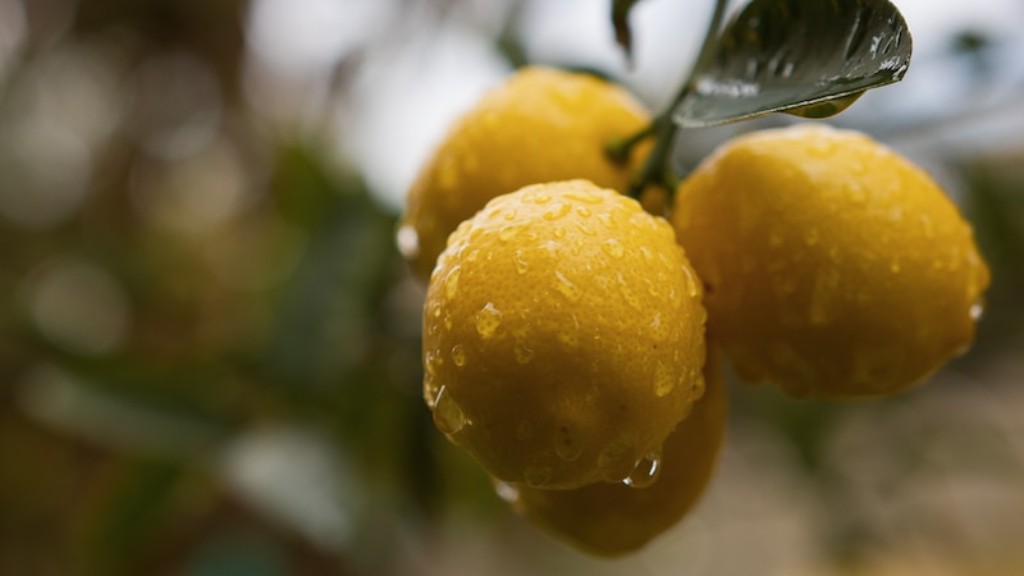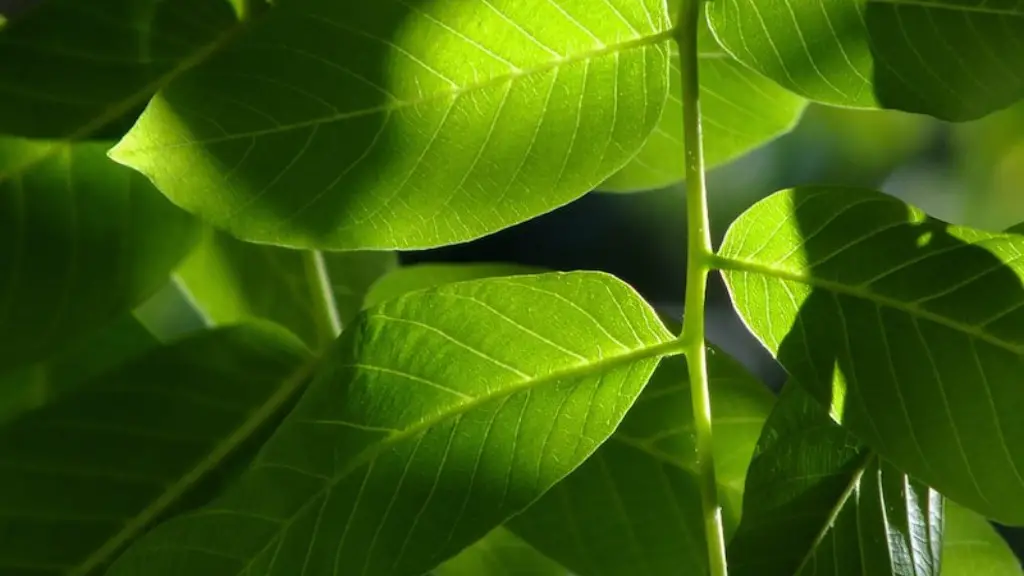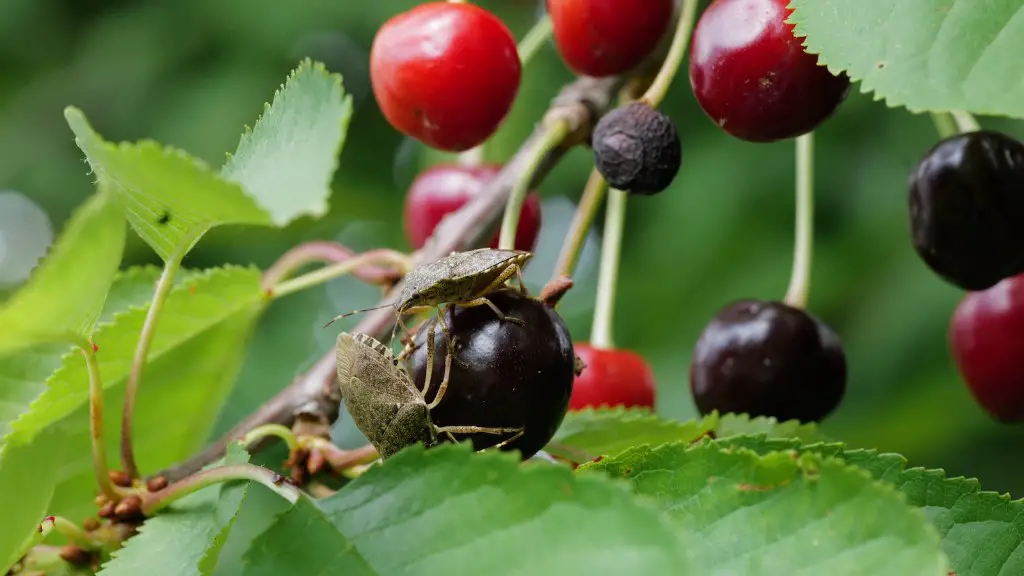Growing your own lemon tree is a fun and rewarding experience, especially when you get to enjoy the delicious fruits it produces! Here are the basic steps to get started:
1. Start with a healthy tree. You can purchase a lemon tree from a nursery or online retailer. Be sure to select a variety that is suited for your climate.
2. Plant your tree in well-draining soil in a sunny spot.
3. Water regularly, especially during the hotter months. Lemon trees are drought-tolerant, but will produce more fruit if they are given enough water.
4. Fertilize regularly with a citrus-specific fertilizer.
5. Protect your lemon tree from pests and diseases. Regularly inspect your tree for signs of problems and take action to prevent or treat them.
With a little care, your lemon tree will thrive and provide you with an abundance of delicious lemons!
To grow a lemon tree, you will need a lemon seed, a pot, potting soil, and water.
Start by planting the lemon seed in the pot of soil. Water the seed regularly, and keep the pot in a sunny spot. In a few weeks, the seed will sprout and begin to grow. Once the lemon tree is a few inches tall, you can begin to fertilize it.
Lemon trees need a lot of sunlight and water to thrive. Be sure to keep the tree in a sunny spot, and water it regularly. With proper care, your lemon tree will produce delicious lemons for years to come!
How long does it take to grow a lemon tree?
Lemon trees are a popular choice for many homeowners due to their ability to thrive in warm climates and produce fruit relatively quickly. While it can take up to six years for a lemon tree to bear fruit when grown outdoors, they can provide delicious lemons for many years to come.
Lemon trees require full sunlight and well-drained, slightly acidic soil for adequate growth. They should be set slightly higher than ground level, so dig a hole that is shallower than the length of the root ball.
Can you grow a lemon tree from a lemon seed
Lemon trees are easy to grow from seed and make a great addition to any home. The seeds germinate easily and the young leaves are fragrant, making them a perfect potpourri plant.
Lemon trees are a popular choice for many homeowners because of their beauty and delicious fruit. However, lemon trees in containers are more vulnerable to the cold and drought than those in the ground. A lemon tree in a container has a hardiness zone that is one zone higher than the USDA recommended zone. This means that the tree will be more susceptible to damage from frost and cold weather. In addition, lemon trees in containers are more likely to suffer from drought because they have a smaller root system.
Are lemon trees toxic to dogs?
Citric acid can be toxic to dogs if eaten in large quantities. Symptoms of toxicity include GI upset and central nervous system depression. If your dog ingests a large amount of citric acid, please contact your veterinarian immediately.
When you buy a citrus tree, it may seem small. However, even with dwarf varieties and regular pruning, most container citrus trees eventually measure near 6 feet tall.
Can lemon trees grow in pots?
If you experience cooler weather during the fall and winter months, growing a potted lemon tree indoors is a great way to sustain the plant all year long. Since these trees are self-pollinating, only one is needed to produce fruit.
Lemon trees are susceptible to a number of problems, including citrus canker, sooty mold, botrytis blight, anthracnose, and lemon scab. lesions on leaves, black moldy spots, fuzzy gray mold, and brown spots can all be signs of these problems. If you notice any of these symptoms on your lemon tree, be sure to take action to correct the problem.
Are lemon trees hard to keep alive
Lemon trees make a great addition to any home, and are especially well suited for indoor growth. As a citrus variety, lemon trees require full sun, which means about 6 to 8 hours of direct sunlight daily. Place them in front of a south-facing or sunny window for best results.
A Meyer lemon tree is a citrus tree that is thought to be a cross between a lemon and either a mandarin or sweet orange. Meyer lemon trees are two to three feet tall and have dark green, glossy leaves. The fruit of the Meyer lemon tree is smaller and less acidic than a regular lemon.
Do you dry lemon seeds before planting?
Many tropical fruit seeds will not tolerate drying like our common garden seeds. If the seeds have dried a little while, they may still germinate, but the chances decrease rapidly with the increase in time that the seeds have been dry. This is true of many other tropical fruit seeds.
Water sprouts are unwanted shoots that grow from the trunk or branches of a tree. They are often caused by damage to the tree, such as pruning or injury, and can be a big problem if left unchecked. Luckily, they are relatively easy to remove. Simply cut them off at the base, being careful not to damage the tree.
Can you put Miracle Grow on a lemon tree
This is an all-purpose spray that can be used on fruit, citrus, and palm trees. It is effective against a wide range of pests and diseases.
Citrus plants need a well-drained soil in order to thrive, so it is important to select the right potting mix when growing them. Commercial potting mixes that contain peat moss, perlite, vermiculite, and compost are typically fine to use, as long as the soil is light enough to drain water well.
How cold is too cold for a potted lemon tree?
Lemon, lime and citron trees are the least cold tolerant and will suffer at least some damage when temperatures drop below 25ºF. Early ripening varieties can also be planted, so that the fruit may be harvested before cold weather arrives.
There are many different types of lemon trees that you can grow indoors. Meyer lemons are very popular, but you can also try to grow the exotic Buddha’s Hand lemon trees. These trees look like a creepy yellow hand, but they are actually a very interesting and unique type of lemon tree. If you are looking for something different to add to your indoor garden, consider growing a Buddha’s Hand lemon tree.
What happens if a dog licks a lemon
If your dog ingests too much citric acid, it can cause stomach upset, vomiting, and diarrhea. Lemons are high in citric acid, so it’s best to avoid giving them to your dog. A single lick of lemon or lemon juice probably won’t hurt your dog, but too much of it can make them very sick.
Thorns on citrus trees are actually quite useful as they help protect the tree from animals and pests. However, if you find that the thorns are becoming a nuisance, you can safely prune them away without damaging the tree.
Final Words
There are many ways to grow a lemon tree, but the easiest method is to purchase a lemon tree from a nursery. Once you have your tree, it is important to plant it in an area that gets full sun and has well-drained soil. Water your lemon tree regularly, especially during the hot summer months. fertilize your tree yearly with a high-quality citrus fertilizer. Prune your tree as needed to remove any dead or diseased branches. With proper care, your lemon tree should thrive and bear fruit for many years to come!
If you live in an area with a warm climate and plenty of sunlight, you can easily grow a lemon tree from a seed. First, soak the seeds in warm water for 24 hours. Then, plant the seeds in a pot filled with well-drained soil and keep the soil moist. Place the pot in a sunny spot and wait for the seeds to germinate. Once the seedlings appear, thin them out so that only the strongest seedling remains. When the seedling is about 6 inches tall, transplant it into a larger pot or into the ground. Be sure to water the lemon tree regularly and fertilize it every two weeks. With a little patience and care, you can enjoy the fresh lemons from your very own lemon tree!





